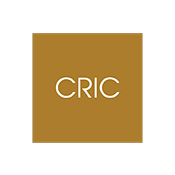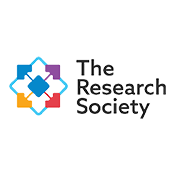Stay connected
Be the first to know about new programs, upcoming events, or other exciting opportunities happening at the University of Georgia by joining our mailing list.
Discover the power of market research.
Free archived webinars: practical insights, real-world impact.
About this course
What you’ll learn

Learning objectives
After completing this course you should be able to:
- Lead a discussion with clients to define major business problems they are facing, and probe to discover obstacles, challenges, opportunities, and threats.
- Determine what the clients already know and what they must know in order to take the most informed actions.
- Identify appropriate secondary research and apply data analysis in defining the business problems and research objectives.
- Translate essential business problems into cogent research objectives that are tied to specific business actions and success criteria.
- Determine the appropriate level and depth of information required for decision-making, differentiating “nice-to-know” information from “need-to-know” information. Determine what is practical within the time and budgetary constraints
- Understand what business problems are “researchable” and which are not.
- Describe the processes and approaches to research design and methodology and how these may differ by region in global projects.
- Describe the role of primary and secondary data, the differences between them, and how they can be applied in a synergistic manner to address the business issues.
- Explain the differences between qualitative and quantitative methods, the types of business problems addressed with each, and how the boundaries between the types of methods are blurring.
- Identify and distinguish between the three basic research designs: exploratory, descriptive and causal.
- Create proposals that clearly articulate the business need/context for the research, research design and methodology, analytical processes, project milestones, costs, and timelines. Explain the relationship between cost and time variables and the research process.
- Discuss the ethical issues researchers face when developing a research proposal.
Who should attend?
- Entry-level researchers looking to learn about research design and how to select the approach that will satisfy business needs.
- Research sales teams seeking to understand decisions their clients face and to write better proposals.
- Experienced researchers looking to catch up with the latest developments.
- Corporations seeking professional development options for their internal training portfolio.
- Supplier-side researchers seeking courses for new-employee onboarding.
- Researchers who lead or contribute to project design.
- Analysts needing to understand the pros and cons of new research methods and technologies.
- Client-side researchers responsible for writing RFPs and evaluating proposals.
Continuing Education Information
Students successfully completing graded components earn a Digital Badge (Opens in a new window) and 0.9 University of Georgia Continuing Education Unit (Opens in a new window) (CEU) from The University of Georgia.
As a graduate of the course you will be recognized by industry associations, employers, peer groups and other professionals as understanding how to translate your research findings into reports and presentations that grab your audience’s attention, address the business decision your client needs to make, and offer sound and useful recommendations. This recognition will help you advance in your company and the industry.
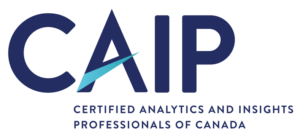
CAIP Canada (Opens in a new window) also recommends the course for candidates looking to fill in the gaps or gain a refresher in specific areas.
Requirements & policies
Schedule
Enroll at any time and complete the course’s required graded components within 30 days.
Fees & funding information
$359 – Standard Fee
$329 – Association Discount (Members* of: Insights Association; ESOMAR; Canadian Research Insights Council, The Research Society, Intellus Worldwide, QRCA, AMAI, WAPOR-Latinoamérica, MRII Board of Directors, UGA MMR Advisory Board.)
$50 – One-Month Extension (only one extension is granted per participant)
*Membership will be verified.
Prepayment is required to be registered. The prices listed are per person (US Funds).
Cancellation or refund
We will issue a refund, minus a $100 processing fee, if you have not accessed the online course. All cancellation and refund requests must be sent via email to gc-student@uga.edu no later than seven (7) days after your course access information is issued.

Technology
Take advantage of the different features (PDF files, URLs/links to external websites, animated exercises, audio and video clips) you should use a browser such as Chrome (Opens in a new window), Firefox (Opens in a new window), Microsoft Edge (Opens in a new window), or Safari (Opens in a new window) and a fast internet connection provide the best experience. The online platform supports many popular web browser versions. To find out if your computer’s current software configuration is compatible, see System & Software Requirements (Opens in a new window).
Prerequisites
There are no prerequisites for enrolling in Research Design and Data Identification. However, prospective enrollees might also consider our course, Introduction to Market Research and the Research Process.
Explore more foundational, topic-specific courses in our Principles Express series (Opens in a new window).
Textbooks
Suggested (not required)
Malhotra, Naresh K., Essentials of Marketing Research: A Hands-On Orientation, Pearson Education: Upper Saddle River, NJ. ISBN-13: 978-0-13-340182-0 (digital subscription edition)
Included in the online course are suggested reading assignments from the above textbook. These readings are not required content and will not be part of the testing for the course. The textbook suggestions are simply intended to add additional depth to your understanding of the topic.
People & organizations
Author
Susan Frede – Research Methodologist & Analyst
Susan Frede is a 30+ year market research veteran. Currently, she is the owner of Frede Research LLC and the Research Director at Aimpoint Research. She is focused on research design, survey writing, analysis, and reporting. Frede is a trusted advisor to clients, designing innovative yet practical research solutions to address business needs and strategic objectives. Versed in the art and science of research analysis and insight generation, she applies optimal techniques to inform better marketing decisions, delivering a compelling story and recommendations to stakeholders.
Prior to her current role, Frede spent over 18 years with Kantar, the data investment management division of WPP. She earned her master’s degree in adult education from the University of Georgia in 2015. Frede is a frequent speaker and writer on research topics and has taught research principles at the college level.

Supporting associations
Founding Organizations
Proud Corporate Sponsors of MRII
 (Opens in a new window)
(Opens in a new window) (Opens in a new window)
(Opens in a new window) (Opens in a new window)
(Opens in a new window) (Opens in a new window)
(Opens in a new window) (Opens in a new window)
(Opens in a new window)
 (Opens in a new window)
(Opens in a new window)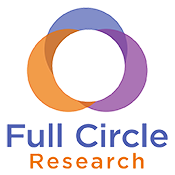 (Opens in a new window)
(Opens in a new window) (Opens in a new window)
(Opens in a new window) (Opens in a new window)
(Opens in a new window) (Opens in a new window)
(Opens in a new window) (Opens in a new window)
(Opens in a new window) (Opens in a new window)
(Opens in a new window) (Opens in a new window)
(Opens in a new window) (Opens in a new window)
(Opens in a new window) (Opens in a new window)
(Opens in a new window) (Opens in a new window)
(Opens in a new window) (Opens in a new window)
(Opens in a new window)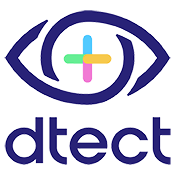 (Opens in a new window)
(Opens in a new window) (Opens in a new window)
(Opens in a new window) (Opens in a new window)
(Opens in a new window) (Opens in a new window)
(Opens in a new window) (Opens in a new window)
(Opens in a new window) (Opens in a new window)
(Opens in a new window)Supporting Organizations
Prices, course details, dates, and times are subject to change.
Contact us + FAQs
FAQs
View the most frequent questions asked by our learners
Financial and Military Assistance
Find out which programs are eligible for assistance
Accommodations
View our accommodation policy





